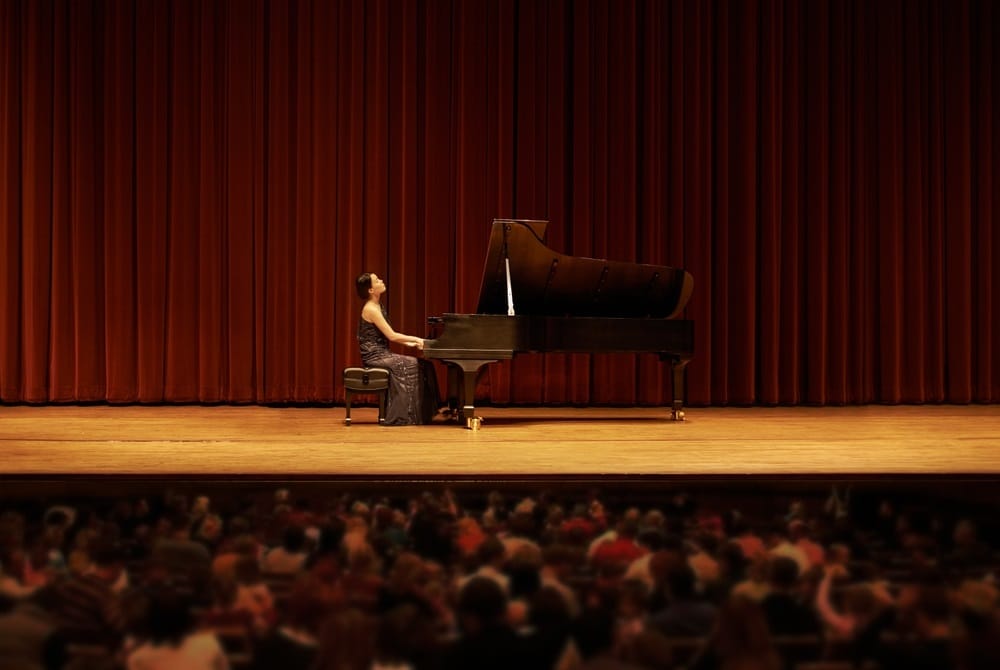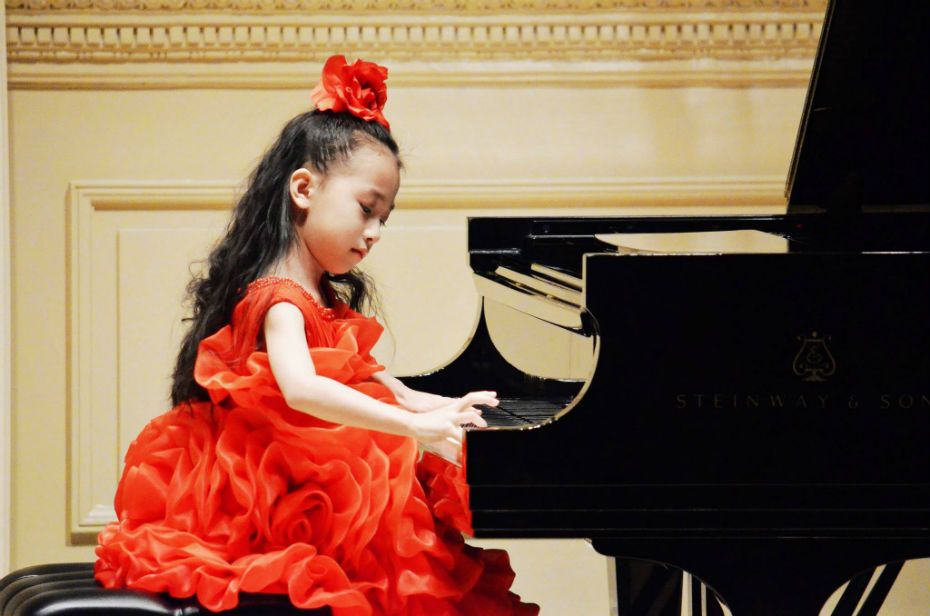
If you take a short time to explore piano competitions online, you soon realize that the quantity of them is astonishing. They range from smaller, more local events through to internationally acclaimed competitions that attract some of the most aspiring pianists from across the globe.
For some, these occasions offer the opportunity to be recognized, rewarded and elevated onwards as a professional pianist, for others perhaps they are a daunting, pressured nightmare.
Competition between keyboard players, singers and other instrumentalists must date back hundreds if not thousands of years in history. Being competitive can address an instinctive urge to prove oneself and amongst other aspects, gain respect and acclaim from peers.
Of course, the ever-present issue is that competition can result in a certain prima donna mentality that is never going to be positively received.
One such musician with an inflated opinion of themselves was a man called Louis Marchand. Marchand was thought to be one of the best harpsichordists in France and had deeply impressed the French King Augustus of Saxony, with his virtuosity.
The court concertmaster in Dresden was not happy with the appointment and initiated a competition with Weimar’s concertmaster, JS Bach. Bach readily accepted the offer and perhaps the opportunity to teach Marchand a lesson or two.
As it transpires, Marchand fled the court and never competed against JS Bach, which on reflection was probably a wise move.
The Evolution and Impact of Piano Competitions
Today in the 21st Century, some of the most prestigious competitions include the Chopin International Piano Competition; the International Franz Liszt Piano Competition; the Leeds Piano Competition and the Sydney International Piano Competition.
The list is, as you would expect, quite considerably longer however these are amongst the most important competitions for pianists.
Many of these prestigious competitions are centered around famous, celebrated composers. A considerable number of these have their inaugural event shortly after the turn of the twentieth century.
I would suggest that this might in part be due to travel being more affordable, and relatively good economic conditions across Europe, the USA, Australasia and Asia.
Another key aspect of the evolution of these competitions is the desire to provide a platform for creative artists, in this case, pianists, to showcase their talents similarly to those of the sporting community.
Chopin International Piano Competition
Jerzy Zurawlew a Polish pianist and conductor was the man who began the Chopin International Piano Competition. This he did in 1925 shortly after the end of the First World War.
Zurawlew was critically aware the feelings in Poland were not in favour of the perceived romanticism of Chopin and his music was falling from grace.
Having worked tirelessly to secure funding, Zurawlew set about organizing a competition that focused on the piano works of Chopin whilst providing a greatly needed boost for aspiring pianists. There were monetary prizes as well as the promise of an international career for the entrants.
The age range for the Chopin Competition is between 17 and 28 years of age and is now under the auspices of the World Federation of International Music Competitions in Geneva, Switzerland.
Contests run every five years and many of the past winners have progressed to professional careers; Vladimir Ashkenazy is a fine example. Such is the prestige of winning the competition, that success is almost guaranteed.
Leeds International Piano Competition
Founded in 1961 by the Countess of Harewood and Dame Fanny Waterman, herself a renowned educator and pianist, the Leeds International Piano Competition has given many eminent pianists the step-up to worldwide fame.
Interestingly, the competition did not cease even during the Covid pandemic, instead, it became virtual and still managed to include 63 pianists from 17 global locations.
Since 1961, an impressive list of pianists has won the award and carved their pathway through the professional world. When you scan the list of successful pianists it’s quite illuminating.
It includes astonishing pianists like Murray Perahia (1972), Sir Andreas Schiff (1975), Peter Donohoe (1981) and in 2009, Russian pianist Sofya Gulyak. Not only are there financial rewards for winning the competition, but also a mentoring scheme with eminent pianists such as Paul Lewis.
Winning pianists are also offered management, a recording deal with Warner Classics and international convert bookings. The next competition is scheduled for September of 2024 with the competition taking place in St George’s Hall, Bradford.
Tchaikovsky International Music Competition
Unlike some of the earlier-mentioned competitions, the Tchaikovsky International Music Competition now includes not only a category for pianists but also for vocalists (1966) and violin, viola and cello (1990).
Similarly, to other competitions the age range for entrants is between 19 and 32, offering scope for musicians at the start and early career stages. The competition began in 1958 and currently runs along a four-year schedule in Moscow.
There are some attractive financial rewards for securing a place in the final round of the competition.
A first prize can give you $30,000 and there is the chance of a Grand Prix of $100,000 for those who already have the Gold Medal (First Prize position), and are deemed by the judging panel to be outstanding performers.
Performers can and regularly do perform works by Tchaikovsky but can attract additional awards if new works are performed.
Of the Gold Medal winners, you have names such as John Ogdon and Vladimir Ashkenazy (1962), John Lil (1970), Barry Douglas (1986), Danill Trifonov (2011) and Alexandre Kantorow (2019).
Each of these phenomenal pianists and many others besides, have achieved eminence as a direct result of competition success.
Marguerite Long and Jacques Thibaud International Competition
Also, a member of the World Federation of International Music Competitions, Geneva, the Marguerite Long and Jacques Thibaud International Competition is frequently singled out as being amongst the most revered and coveted.
Long (1874-1966) was a child prodigy giving her debut performance in 1886 of WA Mozart’s Piano Concerto in D minor following her receipt of the Prix d’Hoonneur.
Thibaud (1880-1953), was a superb violinist who entered the Paris Conservatoire at thirteen. His career was remarkable, noted for his work with leading contemporary composers and chamber music.
These two remarkable musicians began the competition which strives to provide an equal and fair environment for emerging artists on both piano and violin.
It supports and encourages them on their way towards their international careers. Like so many competitions today, the emphasis of this one is on excellence but also on nurturing talent.
The Challenges of Aspiring Pianists
For those pianists who enter any one or more of the vast array of competitions open to them, the dedication and skill required is considerable.
What we have the privilege of hearing on the concert platform represents countless hours of hard work usually under the mentorship and guidance of dedicated teaching professionals.
Any competition is not for the faint-hearted but there are stepping stones available on the way to these elite events that equally support and foster the development of young artists. The rewards for success are clear but the road to triumph is never without its challenges.

